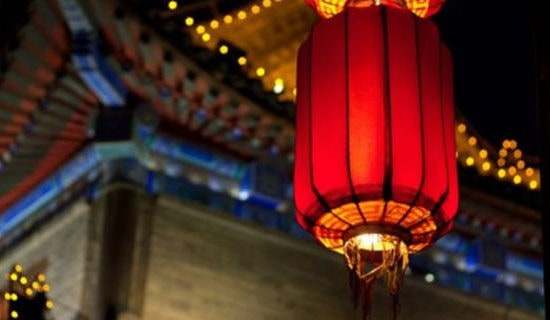有關(guān)于春節(jié)的英語(yǔ)作文三篇
引導(dǎo)語(yǔ):春節(jié)的時(shí)候,家家戶戶都會(huì)團(tuán)圓,亦是我國(guó)最為隆重的節(jié)日之一,那么要怎樣寫一篇有關(guān)于春節(jié)的英語(yǔ)作文呢?接下來是小編為你帶來收集整理的有關(guān)于春節(jié)的英語(yǔ)作文,歡迎閱讀!

有關(guān)于春節(jié)的英語(yǔ)作文一
The happy spring festival spring festival is on the first day of the first lunar month.chinese people most like the spring festival.during spring festival,chinese people like having meals with their families,playing fireworks in the open air.
my sisters and iplayed fireworks on that day.we had many fireworks.they were very beautiful.they were running into the sky and breaking into pieces.they looked like flowers in the sky.
we were very happy and excited.after that,i made awish.i hope that,we can have ahappy and healthy life next year and everyone in my family can be happy.i enjoy the festival very happy.
有關(guān)于春節(jié)的英語(yǔ)作文二
The Spring Festival, Chinese New Year,is the most important festival for all of us. All family members get together on New Year'Eve to have a big meal.At the same time, everyone celebrates to each other.At about 12 o'clock,some parents and children light crackers.The whole sky is lighted brightly. We may watch the fireworks excitedly.How busy it is!
On the first early moring of one year, many senior citizen get up early and they stick the reversed Fu or hang some couplets on the front door. Some house's windows are sticked on red paper cutlings.
The Chinese New Year lasts fifteen days. So during the fifteen days, we always visit our relatives from door to door. At that time, children are the happiest because they can get many red packets form their parents,grandparents, uncles, aunts and so on. The last day of the Chinese New Year is another festival. It names the Lantern Festival.
So the Chinese New Year comes to the end.
有關(guān)于春節(jié)的英語(yǔ)作文三
Chinese New Year or Spring Festival is the most important of the traditional Chinese holidays. It is sometimes called the "Lunar New Year" by English speakers. The festival traditionally begins on the first day of the first month (Chinese: 正月; pinyin: zhēng yuè) in the Chinese calendar and ends on the 15th; this day is called Lantern Festival. Chinese New Year's Eve is known as chú xī. It literally means "Year-pass Eve".
Chinese New Year is the longest and most important festivity in the Lunar Calendar. The origin of Chinese New Year is itself centuries old and gains significance because of several myths and traditions. Ancient Chinese New Year is a reflection on how the people behaved and what they believed in the most.
Celebrated in areas with large populations of ethnic Chinese, Chinese New Year is considered a major holiday for the Chinese and has had influence on the new year celebrations of its geographic neighbors, as well as cultures with whom the Chinese have had extensive interaction. These include Koreans (Seollal), Tibetans and Bhutanese (Losar), Mongolians (Tsagaan Sar), Vietnamese (Tet), and formerly the Japanese before 1873 (Oshogatsu). Outside of Mainland China, Hong Kong, Macau, and Taiwan, Chinese New Year is also celebrated in countries with significant Han Chinese populations, such as Singapore, Indonesia, Laos, Malaysia, the Philippines, and Thailand. In countries such as Australia, Canada and the United States, although Chinese New Year is not an official holiday, many ethnic Chinese hold large celebrations and Australia Post, Canada Post, and the US Postal Service issues New Year's themed stamps.
Within China, regional customs and traditions concerning the celebration of the Chinese new year vary widely. People will pour out their money to buy presents, decoration, material, food, and clothing. It is also the tradition that every family thoroughly cleans the house to sweep away any ill-fortune in hopes to make way for good incoming luck. Windows and doors will be decorated with red colour paper-cuts and couplets with popular themes of “happiness”, “wealth”, and “l(fā)ongevity”. On the Eve of Chinese New Year, supper is a feast with families. Food will include such items as pigs, ducks, chicken and sweet delicacies. The family will end the night with firecrackers. Early the next morning, children will greet their parents by wishing them a healthy and happy new year, and receive money in red paper envelopes. The Chinese New Year tradition is a great way to reconcile forgetting all grudges, and sincerely wish peace and happiness for everyone.
Although the Chinese calendar traditionally does not use continuously numbered years, outside China its years are often numbered from the reign of Huangdi. But at least three different years numbered 1 are now used by various scholars, making the year 2009 "Chinese Year" .
【于春節(jié)的英語(yǔ)作文】相關(guān)文章:
英語(yǔ)作文 春節(jié)08-07
英語(yǔ)春節(jié)作文11-29
春節(jié)的英語(yǔ)作文12-15
英語(yǔ)作文春節(jié)02-02
英語(yǔ)作文:春節(jié)02-01
英語(yǔ)作文:春節(jié)01-26
春節(jié)的英語(yǔ)作文精選01-12
春節(jié)的英語(yǔ)作文「精選」01-07
春節(jié)的作文英語(yǔ)01-08
春節(jié)英語(yǔ)作文精選01-01